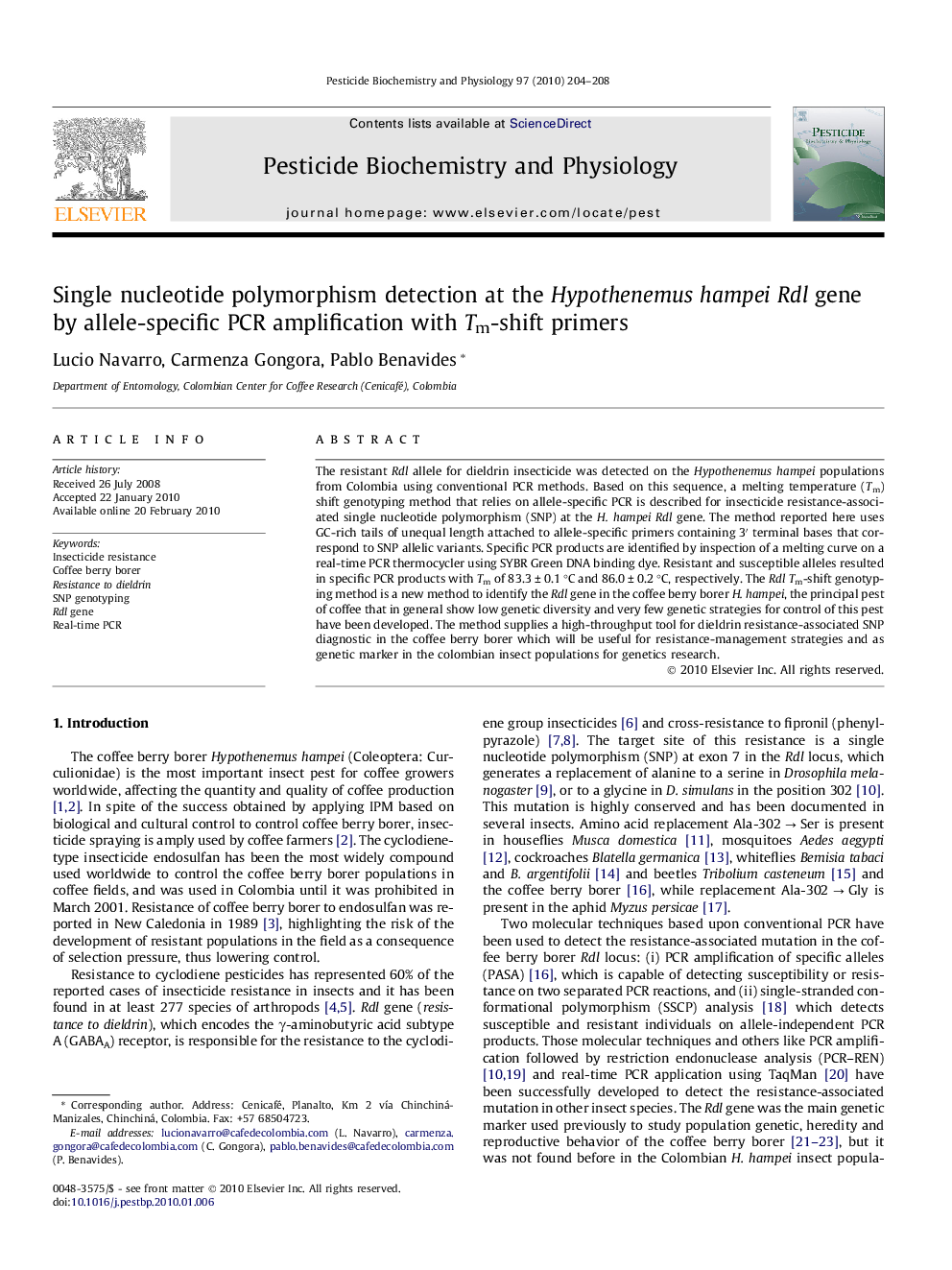| Article ID | Journal | Published Year | Pages | File Type |
|---|---|---|---|---|
| 2009629 | Pesticide Biochemistry and Physiology | 2010 | 5 Pages |
Abstract
The resistant Rdl allele for dieldrin insecticide was detected on the Hypothenemus hampei populations from Colombia using conventional PCR methods. Based on this sequence, a melting temperature (Tm) shift genotyping method that relies on allele-specific PCR is described for insecticide resistance-associated single nucleotide polymorphism (SNP) at the H. hampei Rdl gene. The method reported here uses GC-rich tails of unequal length attached to allele-specific primers containing 3Ⲡterminal bases that correspond to SNP allelic variants. Specific PCR products are identified by inspection of a melting curve on a real-time PCR thermocycler using SYBR Green DNA binding dye. Resistant and susceptible alleles resulted in specific PCR products with Tm of 83.3 ± 0.1 °C and 86.0 ± 0.2 °C, respectively. The Rdl Tm-shift genotyping method is a new method to identify the Rdl gene in the coffee berry borer H. hampei, the principal pest of coffee that in general show low genetic diversity and very few genetic strategies for control of this pest have been developed. The method supplies a high-throughput tool for dieldrin resistance-associated SNP diagnostic in the coffee berry borer which will be useful for resistance-management strategies and as genetic marker in the colombian insect populations for genetics research.
Related Topics
Life Sciences
Agricultural and Biological Sciences
Agronomy and Crop Science
Authors
Lucio Navarro, Carmenza Gongora, Pablo Benavides,
